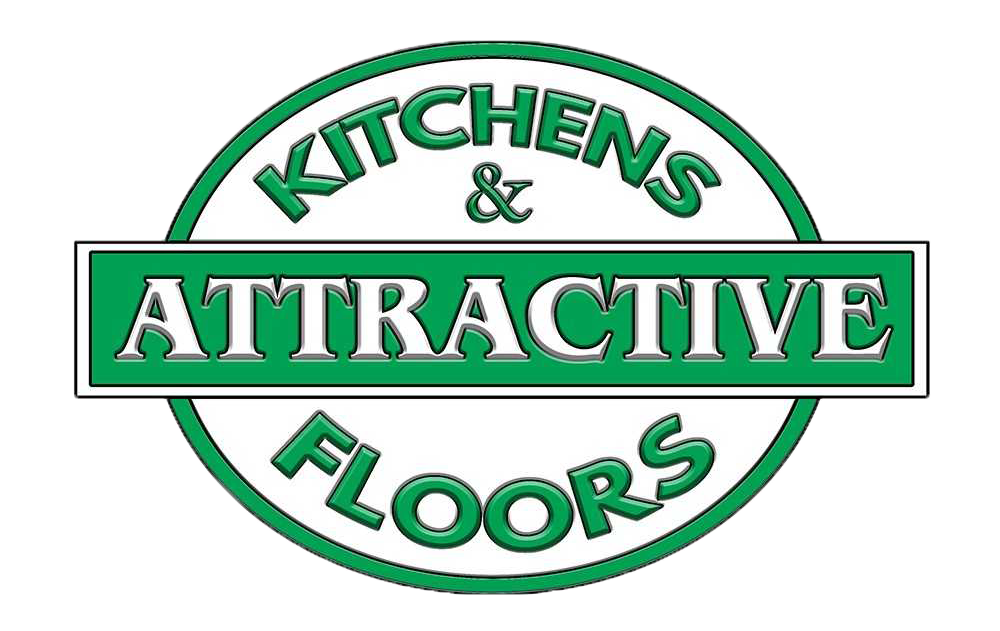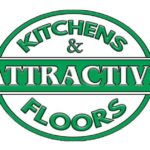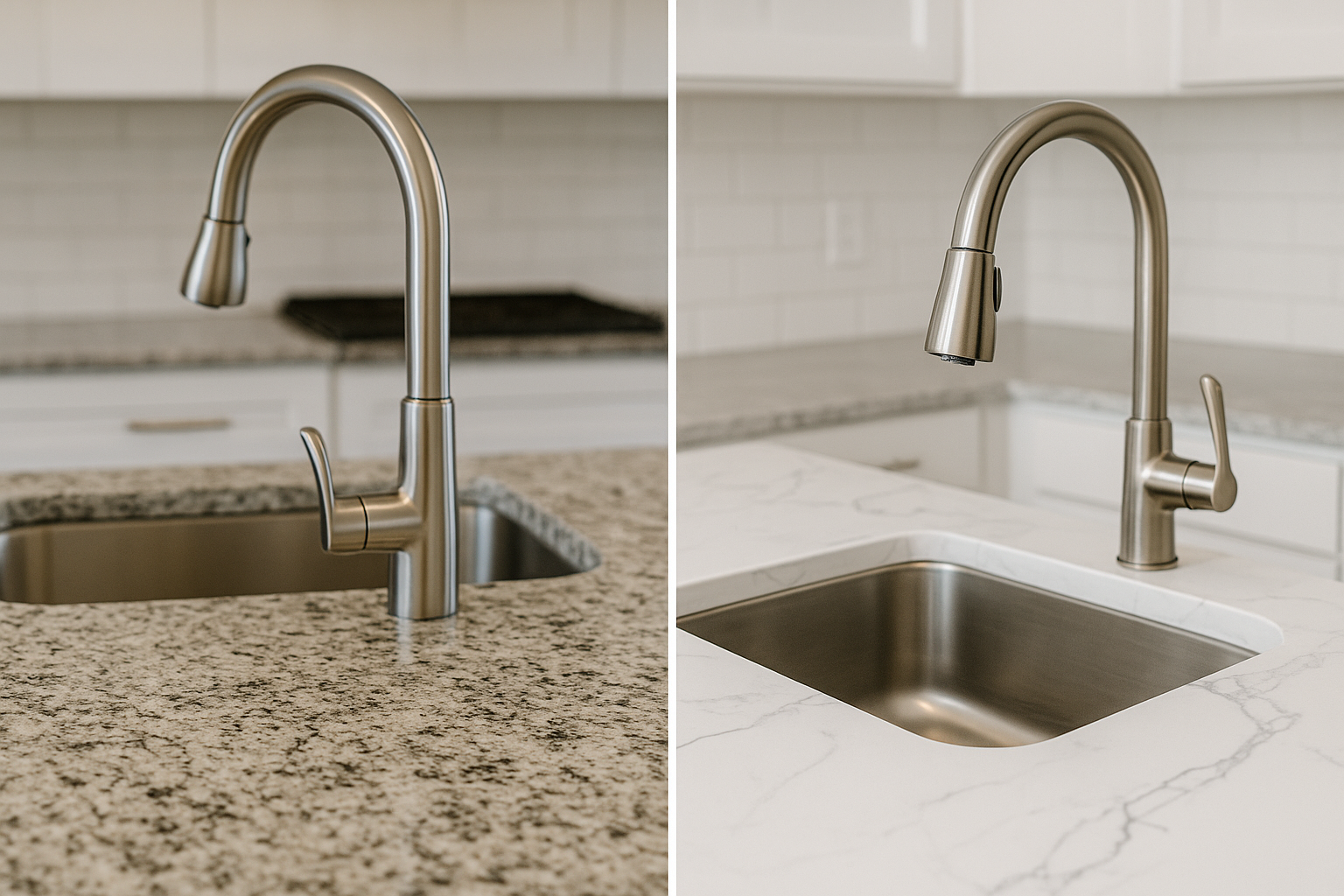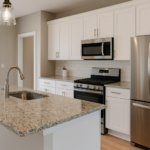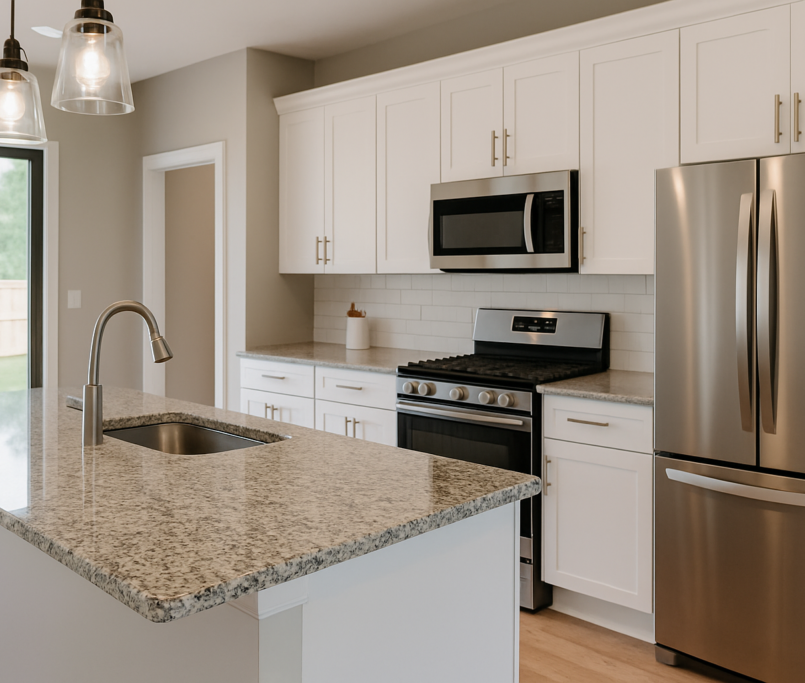Granite vs. Quartz Countertops: Which is Best for Elyria Homeowners?
Granite and quartz represent two of the most popular choices for Countertops in Elyria, each bringing distinct characteristics to a kitchen’s design and functionality. Granite is a natural igneous rock quarried directly from the earth, offering unique veining, color variations, and a rugged tactile appeal. Quartz, by contrast, is an engineered material composed of roughly 90–95% crushed quartz crystals bound with resins and pigments, resulting in a non-porous, uniform surface available in an extensive palette of colors. Understanding these fundamental differences helps Elyria homeowners choose a surface that aligns with their aesthetic goals, maintenance preferences, and budget considerations.
While both materials deliver durability and visual impact, their composition dictates performance under daily use. Granite demands periodic sealing to maintain its resistance to stains and etching, whereas quartz’s engineered finish typically requires no sealing and offers superior stain resistance. This engineered advantage makes quartz a compelling candidate for busy kitchens, while granite’s one-of-a-kind patterns attract homeowners who value natural stone authenticity. In the following sections, granular comparisons on durability, maintenance, cost, and design versatility will guide homeowners toward the ideal countertop surface for their Elyria kitchen renovation project.
Why consider granite for Countertops in Elyria homes?
Granite countertops bring an unmatched, organic beauty to Elyria kitchens by showcasing nature’s palette of mineral grains and veining. Each slab tells a unique geological story, ensuring that no two installations are ever alike. Beyond aesthetics, granite’s natural hardness ranks it among the most scratch-resistant surfaces available, capable of withstanding daily prep work without showing wear under normal use.
Homeowners embarking on a kitchen renovation Elyria project often appreciate granite’s heat resistance, which reduces the risk of surface damage when hot pots or pans are set directly on the stone. When properly sealed—typically once per year—granite maintains its stain-resistant properties, repelling oils, acids, and other common kitchen spills. This combination of durability, ease of care, and inherent beauty cements granite’s reputation as a premier choice for long-term countertop performance in local homes.
Why quartz stands out for Countertops in Elyria?
Quartz countertops represent a marriage of stone’s visual appeal with modern engineering, creating surfaces that are both highly durable and virtually maintenance-free. The non-porous nature of quartz eliminates the need for sealing, offering superior resistance to stains from coffee, wine, and oils without sacrificing the natural look of stone. Elyria homeowners who seek low-maintenance elegance often turn to quartz for its ease of daily cleaning with mild soap and water.
Engineered quartz also delivers remarkable uniformity in pattern and color, making it possible to achieve cohesive, sprawling installations without visible seam variation. This consistency suits contemporary designs and offers a range of bespoke hues not found in natural stone. From classic whites and grays to bold blues and blacks, quartz provides a versatile canvas for homeowners looking to make a refined statement in their kitchen remodeling pursuits.
How do durability and maintenance compare?
Both granite and quartz excel in strength, but their distinct compositions influence ongoing care requirements and long-term wear.
Granite’s natural crystalline structure resists heat and heavy impacts, yet its porous nature calls for routine sealing to prevent moisture penetration and staining. Quartz, fortified by resin binders, forms a dense, consistent barrier that resists most household stains and eliminates bacterial growth within the countertop surface.
Durability
Quartz’s engineered resilience often outperforms granite in scratch and chip resistance, thanks to its uniform hardness and absence of natural fissures. Although granite is exceptionally tough, its inherent veins and mineral lines can create weak points susceptible to chips if struck sharply.
Maintenance
Routine care for quartz involves simple cleaning with a soft cloth and non-abrasive cleaner, with no sealing or special treatments required. By contrast, a well-maintained granite surface typically needs an annual sealing ritual and periodic application of natural stone cleaners to sustain its protective layer against spills and etches.
Composition and environmental impact
The ecological footprint of countertop materials resonates with many Elyria homeowners seeking sustainable kitchen solutions. Granite mining involves large-scale quarry operations that extract massive blocks, which are then cut, transported, and finished—each stage contributing to embodied energy and carbon emissions. However, granite’s longevity and natural composition appeal to those looking for a proven, recyclable surface.
Quartz production also consumes energy in the manufacturing of resin binders and pigments, but some engineered quartz brands offset their carbon footprint by sourcing recycled glass or stone aggregates. The non-porous nature of quartz reduces the need for chemical sealers or maintenance treatments over its lifespan. Homeowners weighing these environmental considerations often find a balanced choice between a purely natural stone and an engineered surface designed for low-impact upkeep.
What are the cost factors for granite and quartz?
An informed countertop buying guide should detail material, fabrication, installation, and maintenance costs. Granite typically ranges from $40 to $100 per square foot installed, influenced by slab rarity, color complexity, and edge profiles. Exotic or high-demand granites—such as Azul Bahia or Black Cosmic—command premium pricing due to limited availability and increased fabrication effort.
Quartz countertops average $50 to $75 per square foot installed, with variations driven by brand, color consistency, and technological enhancements like anti-bacterial resins or recycled content. Homeowners can often find mid-range quartz options that deliver a premium look at a competitive price point. Factoring in the long-term savings on sealers and maintenance may tilt cost-benefit analyses in favor of quartz for busy households and commercial applications.
In developing a comprehensive countertop buying guide, Elyria residents should request full-service quotes that include template measurements, delivery, cut-outs for sinks or cooktops, and edge treatments. Transparent pricing from certified fabricators ensures that budget expectations align with design aspirations.
| Attribute | Granite | Quartz |
| Composition | 100% natural stone | 90–95% quartz crystals + resins |
| Porosity | Medium (requires sealing) | Non-porous (no sealing needed) |
| Stain Resistance | High when sealed | Very high (engineered barrier) |
| Maintenance | Annual sealing, natural cleaner | Simple soap and water |
| Color/Pattern Range | Unique, varied slab to slab | Uniform, extensive color palette |
| Heat Resistance | Excellent | Good (avoid extreme direct heat) |
| Scratch Resistance | High | Very high |
| Price Range (installed) | $40–$100/sq. ft. | $50–$75/sq. ft. |
How does aesthetic variety influence remodel countertop ideas?
Design flexibility remains a key driver behind remodel countertop ideas, as surfaces set the tone for cabinetry, backsplash, and flooring selections. Granite’s natural veining and granular patterns impart depth and character, encouraging complementary wood or metal accents in traditional, rustic, or transitional kitchens. Large slabs featuring bold, dramatic mineral streaks often serve as focal points in open-concept layouts.
Quartz’s engineered consistency allows for seamless expansions across islands and peninsula edges without pronounced pattern breaks, supporting minimalist or modern design schemes. The ability to select precise color and pattern repetition facilitates cohesive coordination with cabinetry finishes and backsplash tiles, simplifying decision-making during a renovation. For inspiration on integrating these materials in innovative layouts, homeowners can consult the Project Gallery showcasing real-world applications of quartz and granite surfaces at varying scales and styles.
What should Elyria homeowners look for in a countertop buying guide?
A robust countertop buying guide empowers homeowners to compare top contenders based on key performance metrics and design parameters. Beyond price and appearance, materials should be evaluated on porosity, slip resistance, edge profile options, and compatibility with undermount or flushmount sink styles. Asking for industry certifications—such as NSF/ANSI 51 for food safety—ensures that usable surfaces meet health and safety benchmarks.
Elyria residents benefit from understanding how granite and quartz stand among the Top Countertop Materials available in the market. This overview helps pinpoint brands and fabricators with proven track records in quality control, warranty coverage, and custom fabrication capabilities. By laying out each step—from material selection through final installation—the buying guide reduces unforeseen expenses and decision fatigue.
Finally, homeowners should prioritize local fabricators and installers familiar with Elyria building codes, enabling timely project completion and seamless integration into existing or remodeled kitchen designs.
How to plan a kitchen renovation in Elyria around countertops?
Countertops function as both functional workspace and design anchor, so upfront planning is essential in any kitchen renovation Elyria undertaking. Begin by assessing work triangle efficiency—positioning the sink, cooktop, and refrigerator to minimize traffic flow disruptions. Optimal countertop layout considers peak usage zones, ensuring generous prep space adjacent to cooking appliances.
Material selection should follow preliminary design decisions on cabinetry, lighting, and flooring to maintain cohesion across finishes. Early collaboration with a Kitchen Renovation Company in Elyria streamlines project phases, from drafting 3D renderings to coordinating subcontractors for plumbing and electrical modifications. This integrated approach minimizes timeline setbacks and aligns countertop installation with cabinetry delivery.
How to coordinate countertop installation with cabinetry renovation?
Synchronization between countertop fabrication and cabinetry renovation prevents installation delays and protects material integrity. Fabricators require accurate cabinet dimensions, finished wall surfaces, and appliance placements before templating slabs. Once cabinets are installed and thought-through modifications—like additional support framing for heavier stone—are complete, countertop specialists can securely mount the slabs.
Effective project sequencing often involves ordering materials once cabinetry build-out nears completion to avoid prolonged storage risks for premium granite or quartz slabs. Combining countertop installation with expert Cabinetry Renovation ensures that decorative trim, toe kicks, and structural supports align perfectly for a polished final appearance. Clear communication among designers, cabinetmakers, and stone fabricators fosters a seamless transition from raw materials to finished kitchen.
Installation considerations and professional guidance
Precision in templating and installation can determine the longevity and performance of natural and engineered countertops alike. Skilled installers employ laser templates to capture exact dimensions, accounting for sink overhangs, faucet penetrations, and backsplash integrations. Attention to level, structural support, and joint seals prevents water intrusion and uneven wear.
Post-installation best practices include using soft caulking compatible with stone surfaces, adhering manufacturer guidelines for allowable heat exposure, and avoiding abrasive cleaners that can dull surface sheens. For homeowners seeking expert advice, it’s prudent to Contact Us early in the process. Professional consultations can clarify warranty terms, recommended maintenance schedules, and potential edge profile enhancements that underscore a kitchen’s overall aesthetic.
| Cost Category | Granite (per sq. ft.) | Quartz (per sq. ft.) | Durability Score (1–10) |
| Material | $40–$100 | $50–$75 | Granite 8, Quartz 9 |
| Fabrication & Labor | $15–$30 | $20–$35 | Granite 8, Quartz 9 |
| Maintenance (annual) | Sealant $50–$100 | None | Granite 7, Quartz 9 |
| Average Total Cost | $55–$130 | $70–$110 | — |
Making the right choice for Elyria kitchens
Granite and quartz both deliver enduring style and functionality for Countertops in Elyria, yet the optimal selection hinges on a homeowner’s priorities—natural variation versus engineered consistency, maintenance routines, and budget allocations. Granite captivates with its unique mineral formations and heat-resilient surface, while quartz appeals through its tight color control, non-porous finish, and straightforward upkeep. By weighing performance attributes alongside design preferences, Elyria homeowners can confidently align their renovation goals with a surface that elevates daily living.
Attractive Kitchens and Floors stands ready to guide residents through every phase, from material selection to professional installation. With careful templating, expert craftsmanship, and attentive aftercare, local homeowners secure a kitchen centerpiece that endures both style trends and practical demands, ensuring satisfaction for years to come.
FAQs
Should homeowners choose quartz or granite countertops for high-traffic kitchens?
High-traffic kitchens benefit from quartz’s consistent hardness and non-porous finish, which resists staining without sealing. Granite remains durable but requires annual sealing to preserve its resistance to spills and moisture.
How often do granite countertops need to be sealed in Elyria’s climate?
Most granite countertops should be sealed at least once per year to protect against Elyria’s humidity levels and potential staining agents. Testing with water droplets can indicate if resealing is necessary sooner.
Can quartz withstand hot pots and pans placed directly on its surface?
Quartz tolerates moderate heat but can discolor or crack under extreme, sustained temperatures. Using trivets or heat pads is recommended to preserve its finish and avoid damage.
Are there eco-friendly options for engineered quartz in Elyria?
Yes, several quartz manufacturers incorporate recycled glass, porcelain, or reclaimed quarried stone into their slabs. Homeowners should request sustainability certifications when selecting eco-friendly quartz products.
What edge profiles are available for granite and quartz installations?
Common edge profiles include eased, bullnose, ogee, and bevel. Both materials can be fashioned into intricate or simple edges, though extremely delicate profiles may require extra support on heavier granite slabs.
